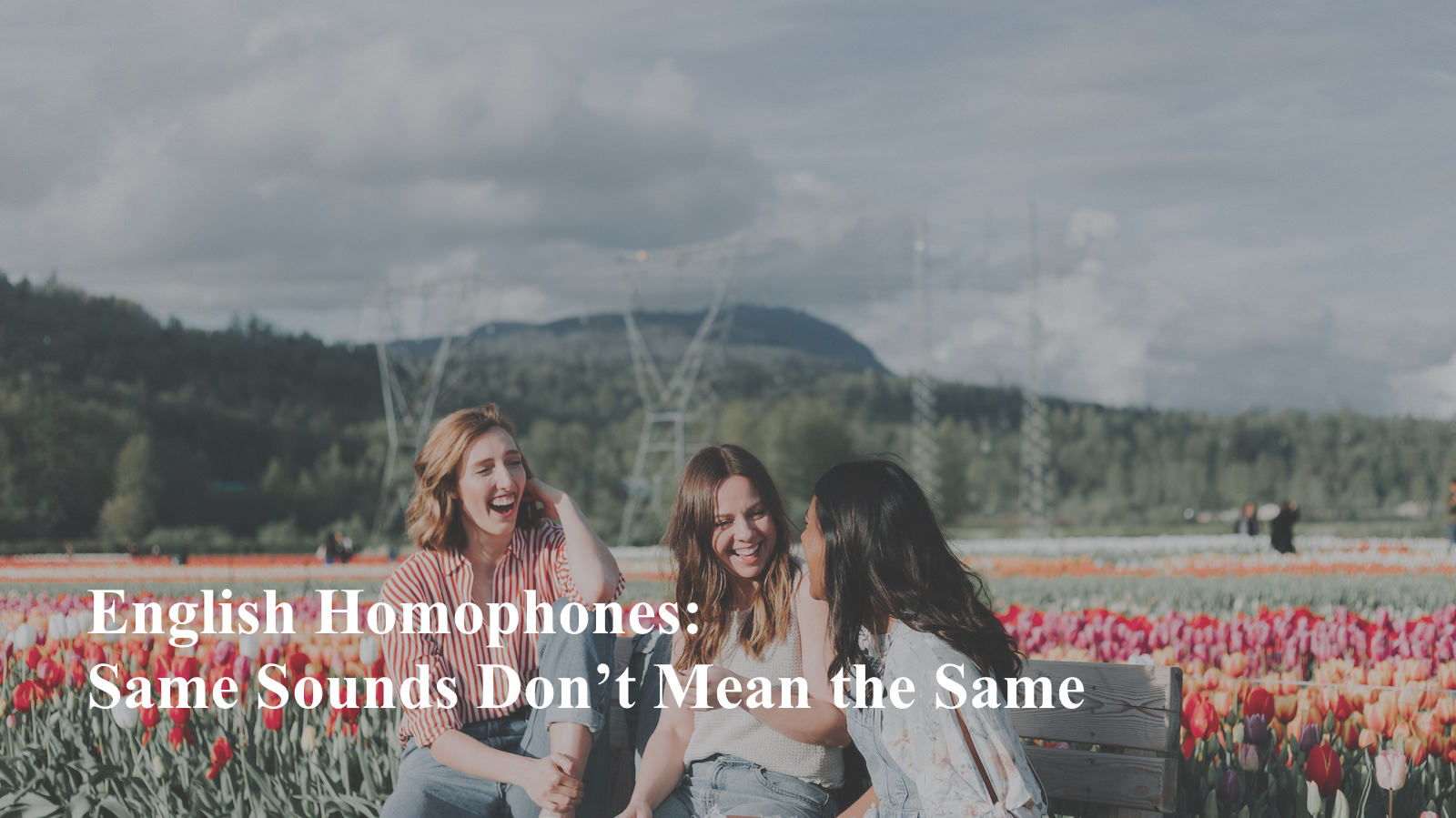English Homophones: Same Sounds Don’t Mean the Same

Fare and Fair. When you don’t see these words, and just listen to them spoken, you wouldn’t really think they are different. These are examples of homophones.
Today, let’s level up your spelling and vocabulary. So our topic is not commonly discussed as it is not a major grammar topic, yet it is very important in building English vocabulary. We will talk about HOMOPHONES.
These are words that sound the same but are spelled differently and actually have different meanings. You can imagine the confusion this can cause, especially to learners of the English language.
Homophones are also important to learn for you to understand the context. Once you become familiar with the sounds and their meanings, you’d understand what native speakers are saying.
Let’s take a closer look at 10 of them today:
Note that the first three are the most common mistakes that both native English speakers and English students make:
1. YOU’RE = a contraction of “YOU ARE” *As soon as there’s an apostrophe, it’s a contraction.
YOUR = 2nd person possessive
“You’re not talking about your mobile house, are you?”
2. IT’S = contraction of “IT IS” *Contraction means two separate words that are joined into one.
ITS = 3rd person possessive
“Have you read The Chronicles of Narnia? Well, it’s a good book, and its cover looks great.”
3. THEY’RE = contraction of “THEY ARE”
THEIR = 3rd person plural possessive adjective
THERE = adverb of place
“They’re there with a bunch of their cousins.”
4. SUN = bright shining ball that’s up in the sky
SON = a male child
“My son loves playing out in the sun.”
5. CLOSE = verb “to close”, the opposite of “to open”
CLOTHES = noun, refers to what you wear
“Please don’t close the door yet, I need to hang these clothes outside.”
6. HERE = adverb of place
HEAR = verb “to hear”, one of the 5 senses
“I can’t hear you well. Can you come here?”
7. DEAR = adjective which means beloved or loved. It’s also used as an endearment. You often start letters with this or you call someone close to you this word.
DEER = noun, a wild animal *Remember Bambi– the Disney character?
“Dear Faye,
Here are the gifts I bought for you when we went to Morocco last week.
Here are pictures of deer that we took when we went trekking.
Happy Birthday!
Love,
Your Dear Aunt Beth”
“The deer is hiding behind the bush.”
“Marie and Emi are my dear friends.”
8. BYE = short for “goodbye”
BY = preposition which means “near” or near the area. It’s also a means by which you arrive in a plac or destination.
BUY = verb, to purchase something
“I go to the nearest store by bus to buy spices and ingredients for my lasagna.”
9. FLOWER = a plant
FLOUR = white powder used in baking
“Mom placed the yellow flour beside the box of flour.”
10. OUR = 1st person plural possessive
HOUR = unit of time which is 60 minutes
“The hour has come. Our train is here!”
As you can see from the examples, a homophone is a word that is pronounced the same as another word but differs in meaning. The words may be spelled the same, such as rose (flower) and rose (past tense of “rise”). Or, they may be spelled differently, such as carat and carrot OR to, too, and two.
Take a look at this list of homophones:
we’re , were , where
aloud , allowed
bare , bear
be , bee
been , bean
four , fore
feat , feet
find , fined
flea , flee
new , knew
grate , great
meet , meat
not , knot
roll , role
I , eye
hair , hare
sun , son
eight , ate
sale , sail
mail , male
waster , waist
write , right
die , dye
see , sea
sum , some
blew , blue
pain , pane
weigh , way
root , route
weather , whether
road , rode
nose , knows
throne , thrown
Here are more examples. This time, I won’t give the meaning or definition of each word. But, I’d like you to understand the different meanings by way of context. You can see the differences based on the sample sentences. Let’s start:
BREAK
Be careful not to break that porcelain bowl.
BRAKE
Don’t forget your brakes! It will save your life on the road.
WHOLE
The whole Science class has its eyes on the experiment.
HOLE
I see a small hole in the dress.
KNIGHT
The knight won the girl’s heart.
NIGHT
Are they arriving in the afternoon or at night?
WOULD
You would not want to go there alone.
WOOD
Don’t burn all the wood! We need some tomorrow.
PEAR
Would you slice the pear in half?
PAIR
I lost a pair of shoes during our trip to Asia last month.
AIR
The cool air at the lake refreshes me all the time!
HEIR
The heir to the throne died in battle.
STAIRS
My old uncle can’t climb the stairs anymore.
STARES
Margo stares at Dean every day.
ATE
Kevin admitted that it was he who ate all the pies.
EIGHT
I work eight hours from Monday to Friday and still do overtime work on weekends.
From the second set of examples, you can see the importance of context. Understanding the meaning of words that sound the same based on situation helps a lot in unlocking homophones. Once you know the difference, it’s not too confusing anymore.
